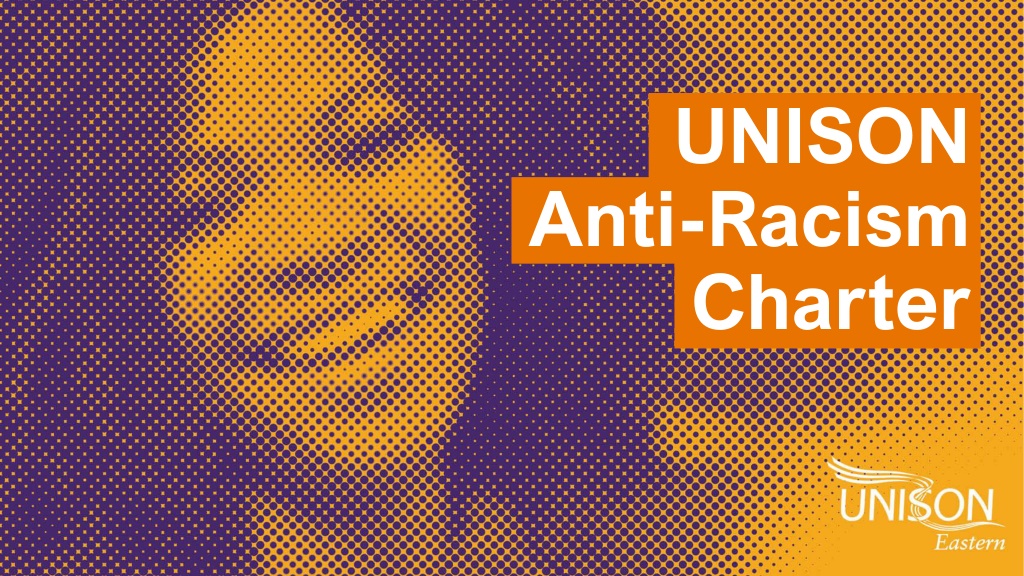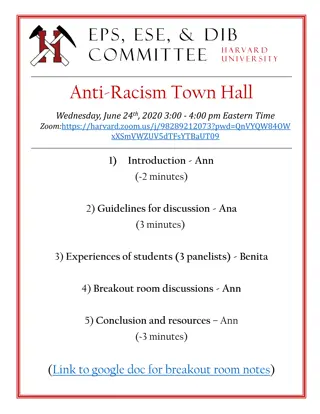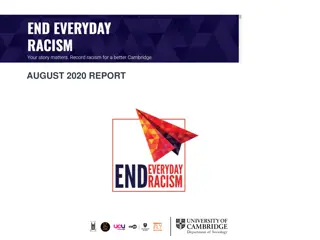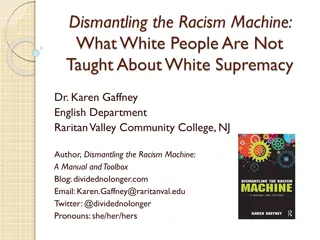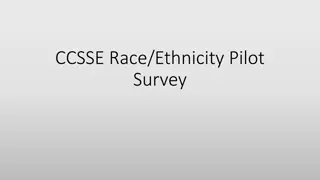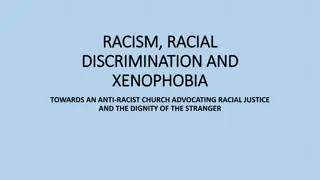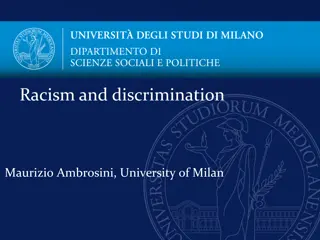Understanding the Importance of Anti-Racism Charter in the Workplace
The Anti-Racism Charter emphasizes the difference between being non-racist and anti-racist, highlighting the need for action to address racial disparities in various aspects of work. It promotes creating a positive work environment, reducing discrimination, and fostering diversity and inclusion. Committing to anti-racism not only benefits employers by attracting diverse talent but also enhances job satisfaction and productivity for employees. Embracing anti-racism leads to a safer, respectful, and innovative workplace culture.
Download Presentation

Please find below an Image/Link to download the presentation.
The content on the website is provided AS IS for your information and personal use only. It may not be sold, licensed, or shared on other websites without obtaining consent from the author. Download presentation by click this link. If you encounter any issues during the download, it is possible that the publisher has removed the file from their server.
E N D
Presentation Transcript
UNISON Anti-Racism Charter
Introduction and synopsis What is the Anti-Racism Charter? What is the difference between non-racist and anti-racist? Why is the Anti-Racism Charter important? What are the benefits to employer and employee? What it looks like in practice? Summary and Q&A
What is the Anti- Racism Charter? A commitment to take anti-racism seriously. A pledge to address the racial disparities in: Recruitment, Promotions, Training opportunities, Disciplinary procedures, Pay. A commitment to delivering an extensive anti-racist programme of work in the next 12 months.
What is the difference between non-racist and anti-racist? Non racist: Saying: I am not racist. Saying: I am not like that. Saying: I am not doing that. Anti-racist: Is a positive term that describes people who actively work to understand, explain, challenge and solve racial inequity and injustice. The difference is action!
Why is the Anti-Racism Charter important? This Anti-Racism Charter can make a real difference to Black workers lives. The pledges in the charter will help employers address the racial disparities in recruitment, in promotions, in training opportunities, in disciplinary procedures and in pay. Committing to anti-racism means taking responsibility for our own learning and actions, without needing Black colleagues to hold our hand through that process.
What are the benefits of an anti-racist workplace to an employer and an employee? Employer Employee Promotes a positive work environment where employees feel respected and valued, leading to increased job satisfaction and productivity. Promotes a sense of belonging among employees, regardless of their race, ethnicity, or cultural background. Reduces discrimination and harassment in the workplace, creating a safer and more inclusive environment for all employees. Attracts and retains diverse talent and demonstrates the employer's commitment to diversity and inclusion, making the workplace an attractive place for diverse talent to work and stay. Encourages open communication about issues related to race and ethnicity, creating opportunities for learning, understanding, and growth. Diversity promotes innovation, where outside the box ideas are heard.
What does it look like in practice? Continued reflection and long-term commitment Reviews our practices Seek and expand education Takes a top- down approach Commits to ongoing training Reflects our community Ensures equal opportunities
Summary and your questions For more information and the latest news on the Anti-Racism Charter and UNISON s social media visit linktr.ee/unisoneastern
